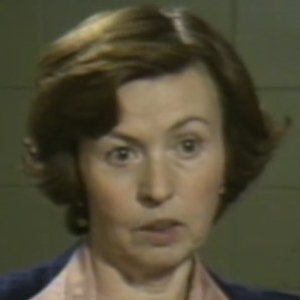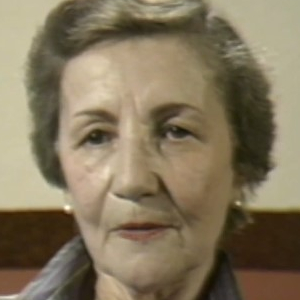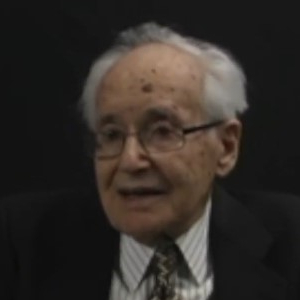Kitty Kenedi
Kitty recalls lining up and receiving a Schutzpass with her husband. The pass granted them Swedish citizenship and some protection from anti-Jewish laws being put in place.
Katalin (Kitty) Kenedi (Kopstein) (née Fodor) was born October 28, 1909 in Budapest, Austria- Hungary (Currently Hungary) to Sigemund and Renee Fodor. Both of her parents had remarried, so she had one half-brother on her father’s side and one half-sister from her mother’s side. She had one fully biological brother; Laszlo. Her family was upper class and they lived in a large villa and employed domestic staff. Her family was not extremely Jewish and did not tell people they were Jewish or celebrate Jewish holidays. Kitty learned to speak German, English, and French. She married her husband Andor in 1929. She had her only daughter Judity (Judy) in 1930.
In 1938 Kitty remembers starting to feel antisemitism when she learned about Jewish men being sent to labor camps. By 1939 Andor’s large lumber business was not successful and they had to get rid of their car. In 1940 Judy was no longer allowed to attend public school and had to attend Jewish school.
Kitty’s husband was sent to a labor camp for three months where he worked emptying wagons. He was allowed to leave and she helped him escape. Unfortunately he was sent back in 1942. In order to make money Kitty started selling her jewelry. In 1944 Kitty remembers having to wear yellow armbands and being forced to leave her apartment. Kitty and Judy were forced to move into a Yellow Star House in Budapest.
After escaping the labor camp, Andor worked for the Swedish Embassy in Budapest. He worked closely with Raoul Wallenberg and helped save Hungarian Jews from deportation. During this time Kitty worked as a medic in the Swedish safehouses. Because of Andor’s connection to Wallenberg, Kitty and her family received Swedish protective passports and safe housing.
In 1945, after liberation, Kitty opened a fashion boutique in Budapest, but had to close it in 1949 when Hungary was under a Communist regime. She then worked as a translator for a government run import/export company. In 1970 Kitty and her family moved to Canada and settled in Winnipeg. After Andor’s death in 1976 Kitty returned to work in the fashion industry. She contributed her story to the book Confronting Devastation: Memoirs of Holocaust Survivors from Hungary that was published after her death in 2017.
Kitty Kenedi died in 2004 and her full testimony is part of the Canadian Collection of Holocaust survivor testimonies. It is preserved in the USC Shoah Foundation’s Visual History Archive and accessible through the Ekstein Library.
Kitty KenediWe had a letter [that said] we don’t have to wear stars.
Testimony to discover
-
Camp

Klara Forrai
Klara describes the procedures surrounding a secret birth at Auschwitz-Birkenau. She remembers the baby being delivered in secret, taken from the moth...
Listen -
Camp

Martin Baranek
Martin describes the conditions he endured at Mauthausen. He remembers beatings and not being fed.
Listen -
Camp

Miriam Spinak
Miriam describes her work sorting through items that were taken from recently arrived prisoners. She recalls finding a baby in a suitcase and many pra...
Listen -
Liberation

Paul Bard
Paul recalls when he was liberated. He describes his reaction seeing the American soldiers and how he felt in the moment.
Listen
Educators & Students
Educational guides
Check resources